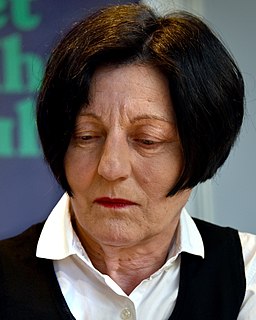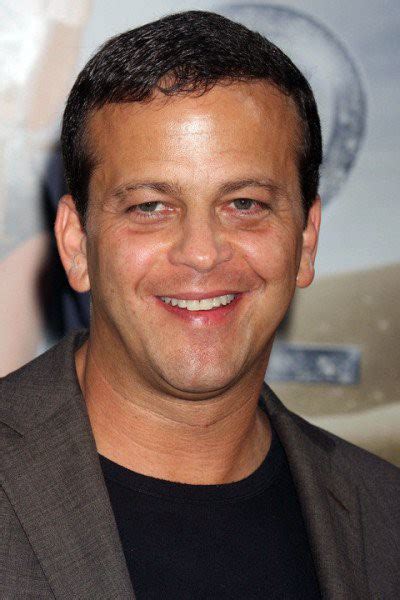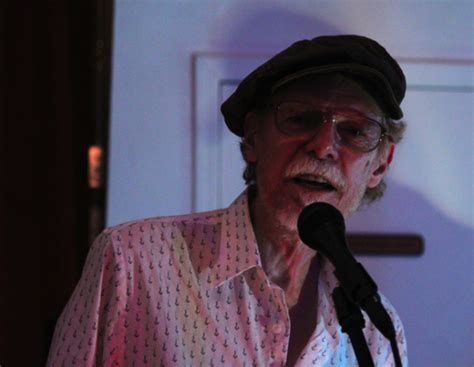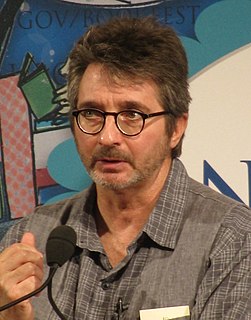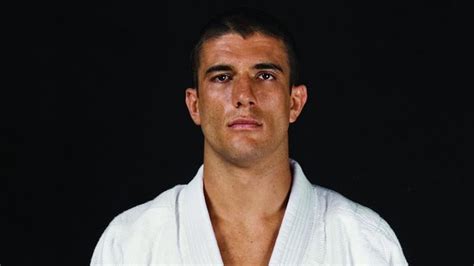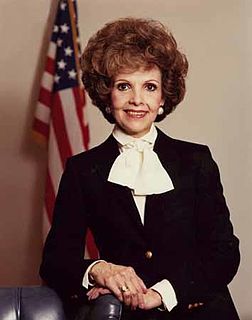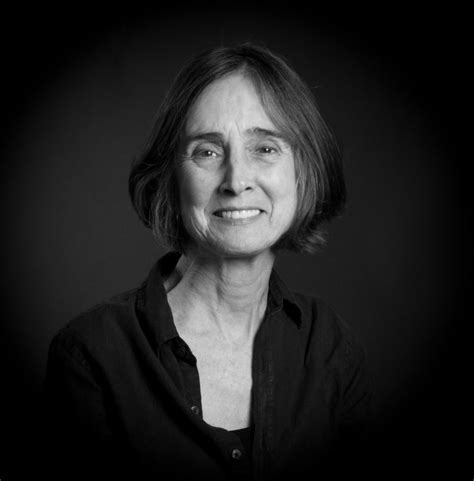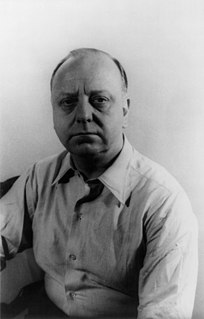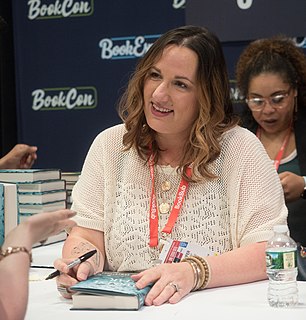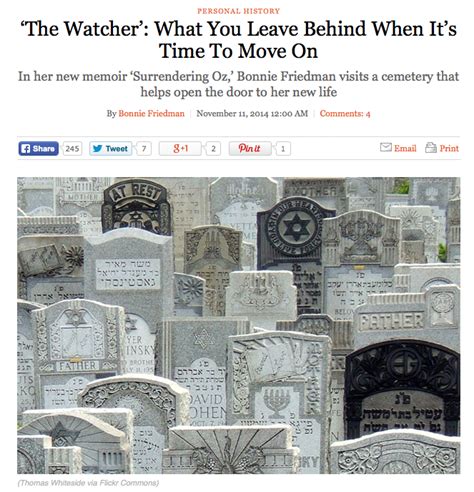Top 1200 Teaching Writing Quotes & Sayings - Page 8
Explore popular Teaching Writing quotes.
Last updated on December 19, 2024.
...I think there's only one [thing] that anybody teaches, and this is character. And I think that whether you are teaching history, math, or biology, or music, what you are really doing is, you are helping to shape the character of that person who is your student... Music is such a wonderful teaching tool, because while you are developing musical skills, that student can learn a lot about discipline [and] cooperation.
I hate writing. I so intensely hate writing - I cannot tell you how much. The moment I am at the end of one project I have the idea that I didn't really succeed in telling what I wanted to tell, that I need a new project - it's an absolute nightmare. But my whole economy of writing is in fact based on an obsessional ritual to avoid the actual act of writing.
When I used to teach writing, what I would tell my playwriting students is that while you're writing your plays, you're also writing the playwright. You're developing yourself as a persona, as a public persona. It's going to be partly exposed through the writing itself and partly created by all the paraphernalia that attaches itself to writing. But you aren't simply an invisible being or your own private being at work. You're kind of a public figure, as well.
Film writing and concert writing are two very different things. In film writing I am serving the film and it tells you what to write. I have to stay within the parameters of the film. In writing concert music for the stage I can write anything I want and in this day and modern age rules can be broken.
Om Schooled is the perfect manual for anyone who wants to start teaching yoga to kids. This is not just a theoretical book—it is a step-by-step manual. Sarah Herrington shares the wisdom she has gained from her day-to-day experiences, for many years, teaching all ages of children yoga in the New York School system.
I have enjoyed teaching most of the times that I have done it. I also like being by myself and making things and performing, so much that if I hadn't needed an income I probably wouldn't have done much teaching. Having said that, I think working with others, having to come up with art projects, and learning how to present your ideas in a clear way, to adults and/or kids is always interesting and rewarding.
Are our ways of teaching students to ask some questions always correlative with our ways of teaching them not to ask - indeed, to be unconscious of - others? Does the educational system exist in order to promulgate knowledge, or is its main function rather to universalize a society’s tacit agreement about what it has decided it does not and cannot know?
It was not a choice of writing or not writing. It was a choice of loving my life or not loving my life. To keep writing was always a first priority.... I worked probably 25 years by myself.... Just writing and working, not trying to publish much. Not giving readings. A longer time than people really are willing to commit before they want to go public.
What I saw quite clearly in the '80s, before the internet, was that the whole world was shifting toward digital formats, and that didn't matter whether it's movies or writing or whatever. It was something that was coming. And with the invention of the World Wide Web in the early '90s, when we were teaching our first courses, or the arrival of the internet by way of the browser, which opened up the internet to everybody - soon it was just revolutionary.
When your purpose and your occupation is giving confidence to people, teaching self defense, giving empowerment, teaching a positive lifestyle to other people, you tend to emit that yourself because you want to live what you preach and you want to preach what you live, and I'm just trying to do my best.
People who write for reward by way of recognition or monetary gain don't know what they're doing. They're in the category of those who write; they are not writers. Writing is simply something you must do. It's rather like virtue in that it is its own reward. Writing is selfish and contradictory in its terms. First of all, you're writing for an audience of one, you must please the one person you're writing for. Yourself.
Everyone had always told me I had to see alpine flowers, since I was writing about flowers, and I had never seen these. So I happened to be teaching a class at the University of Colorado, and I got to go for hikes that took me there. But my perspective was most often down at ground level, trying to see quite tiny exquisite flowers.
When you're writing - when I'm writing anyway - I'm writing out of different kinds of preoccupations and obsessions, different forms of drivenness, and so you're really hostage those while writing. I am, anyway. And it's only when you finally take the finished thing out of the furnace that you see what it was that went into the making of the thing.
Teaching is more difficult than learning because what teaching calls for is this: to let learn. The real teacher, in fact, lets nothing else be learned than learning. His conduct, therefore, often produces the impression that we properly learn nothing from him, if by "learning" we now suddenly understand merely the procurement of useful information.
I loved teaching social studies. And I loved starting each year by teaching about John Locke and the social contract. That lesson helped me teach not just about our rules for the classroom, but how, in our democracy, we give up some individual rights to ensure we collectively have the right to live and prosper in a society.
I try to be realistic with students. And say that there's a good chance that they're not going to get a creative writing teaching job, that there aren't enough jobs to go around and the university faculties are cutting back on staff and that they may have to get some other kind of work. None of them wants to hear that, but it is true and I think I'm a good example for them of somebody who took the other route.
If you're a "good" teacher, somebody who is responsible or careful, teaching takes time. Teaching is performative. Students nowadays evaluate you and there's a lot made in these evaluations about how you perform. Maybe you don't have the greatest delivery in the world. But you know a lot, have a lot to offer. So that's pretty unsettling. We've become so image-based and performance-based as a society. You have to be ready to appear on "Jimmy Kimmel Live!" at any moment.
Writing is writing to me. I'm incapable of saying no to any writing job, so I've done everything - historical fiction, myths, fairy tales, anything that anybody expresses any interest in me writing, I'll write. It's the same reason I used to read as a child: I like going somewhere else and being someone else.
If you are thinking, you can't understand Zen. Anything that can be written in a book, anything that can be said - all this is thinking . . . but if you read with a mind that has cut off all thinking, then Zen books, sutras and Bibles are all the truth. So is the barking of a dog or the crowing of a rooster. All things are teaching you at every moment, and these sounds are even better teaching than Zen books.
The process of writing fiction is totally unconscious. It comes from what you are learning, as you live, from within. For me, all writing is a process of discovery. We are looking for the meaning of life. No matter where you are, there are conflicts and dramas everywhere. It is the process of what it means to be a human being; how you react and are reacted upon, these inward and outer pressures. If you are writing with a direct cause in mind, you are writing propaganda. It's fatal for a fiction writer.
I would not recommend poetry as a career. In the first place, it's impossible in this time and place - in this culture - to make poetry a career. The writing of poetry is one thing. It's an obsession, the scratching of a divine itch, and has nothing to do with money. You can, however, make a career out of being a poet by teaching, traveling around, and giving lectures. It's a thin living at best.

